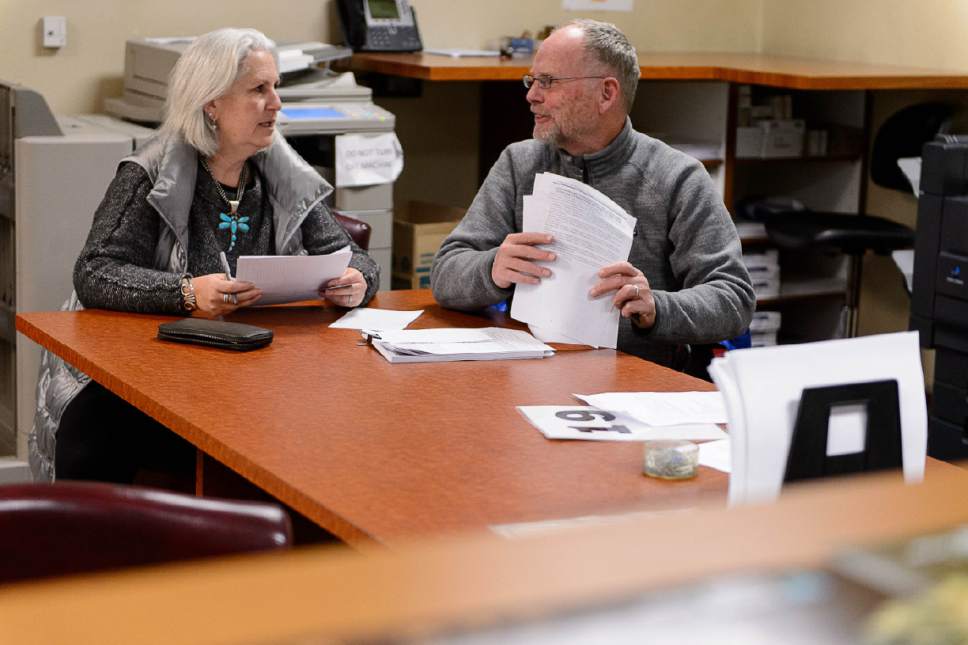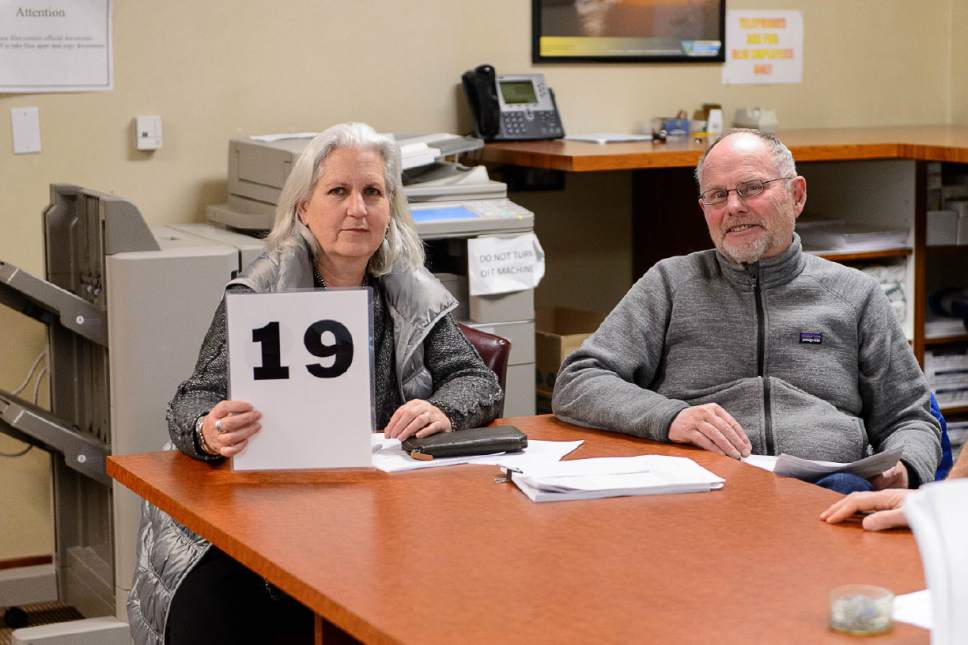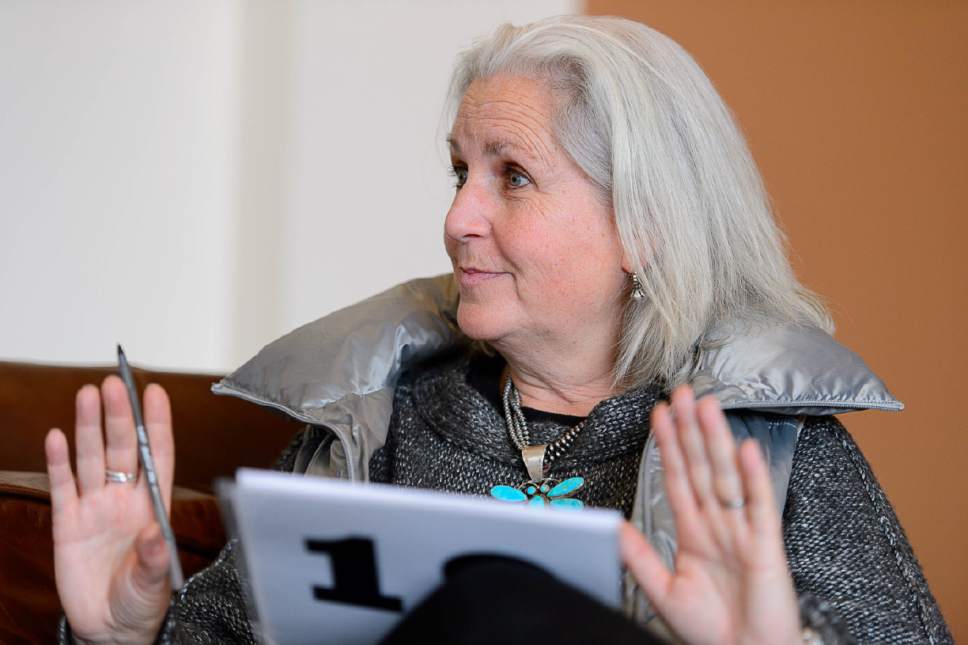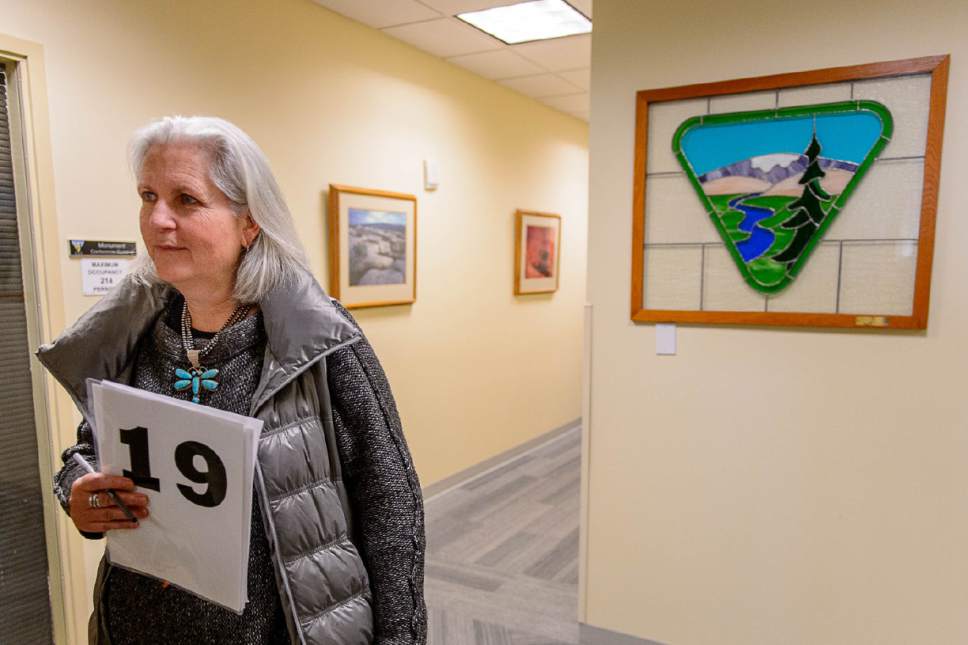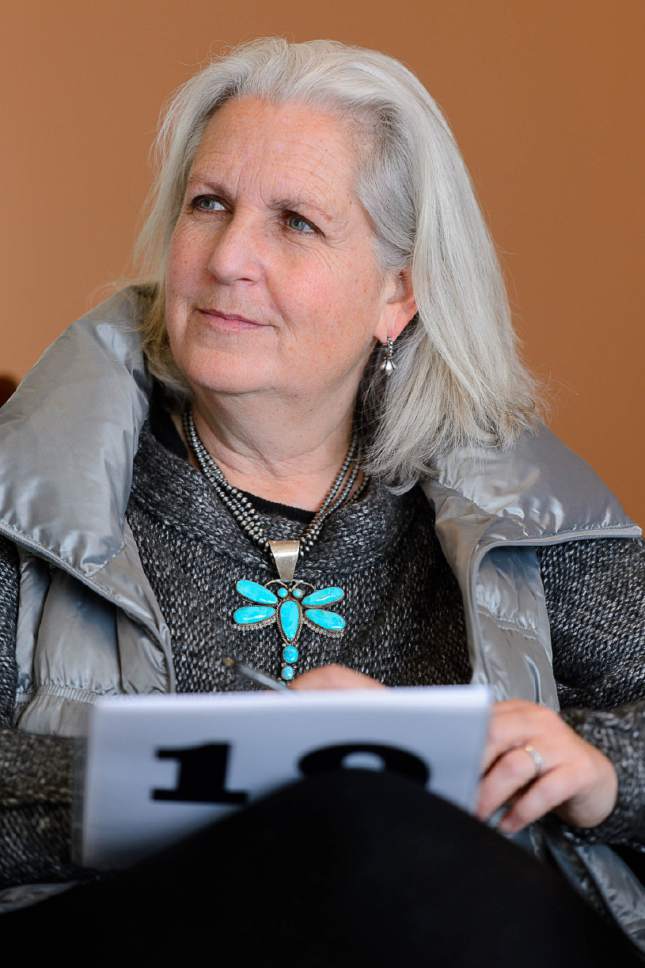This is an archived article that was published on sltrib.com in 2016, and information in the article may be outdated. It is provided only for personal research purposes and may not be reprinted.
In February, Utah conservationist and author Terry Tempest Williams handed her credit card to the Bureau of Land Management to pay for two oil and gas leases on land not far from where she lives in Grand County. For the past eight months, the federal government has sweated over whether to issue the leases, since Williams and her husband, Brooke, are among Utah's highest-profile wilderness advocates.
This week, the Interior Department decided to refund the Williamses and withhold the leases, citing Tempest Williams' published remarks vowing to keep the leased hydrocarbons in the ground.
"A primary requirement of the Mineral Leasing Act is that the lessee of an oil and gas lease be reasonably diligent in developing its lease. Ms. Terry Tempest Williams of Tempest Exploration indicated on several occasions that the company has no intention of developing the two leases. BLM, therefore, had little choice other than to deny the lease offers," said an agency spokesman.
The Williamses say they are evaluating legal options to challenge the decision.
"We are disappointed in the agency's decision to hold us to a different standard than other lessees," they said in a news release. "The BLM has never demanded that a lease applicant promise to develop the lease before it was issued. In fact, a great many lessees maintain their leases undeveloped for decades, thereby blocking other important uses of the lands such as conservation and recreation."
Had the Williamses been issued the leases, they would have begun paying annual rent of $1.50 per acre. Instead the 1,120 acres north of Arches National Park will be returned to the pool of BLM parcels available for leasing, and the Williamses will receive a check from the federal treasury for $1,680.
The decision affects just two leases out of the hundreds the BLM has sold in the past few years, but could set a precedent as other conservationists step up to buy BLM leases on the cheap.
Pro-wilderness foundations sometimes pay millions for existing leases, with federal blessing, for the sake of keeping development out of lands with strong natural values. Even more common is the practice of companies and individuals acquiring drilling rights on leases that don't get developed for a variety of reasons.
Tempest Williams and her husband formed an LLC called Tempest Exploration to manage the leases. They'd hoped to incorporate the land into a course on landscape and advocacy Tempest Williams taught through the University of Utah's Environmental Humanities graduate program, which she helped found a decade ago. The author has since severed ties with the program, but has said she still wants to use her leases to inspire changes in how the federal government distributes drilling rights to publicly owned hydrocarbon resources.
"Our purchase was more or less spontaneous, done with a coyote's grin, to shine a light on the auctioning away of America's public lands to extract the very fossil fuels that are warming our planet and pushing us toward climate disaster," Tempest Williams wrote in a March 29 op-ed published in The New York Times. "The energy we hope to produce through Tempest Exploration is not the kind that will destroy our planet, but the kind that will fuel moral imagination."
That essay prompted the BLM's acting state director, Jenna Whitlock, to send a letter to the Williamses asking the couple to explain their interest and ability to produce oil and gas from the leases.
"We have made clear to the BLM that we would consider developing our leases when science supports a sustainable use of the oil and gas at an increased value, given the costs of climate change to future generations," the Williamses wrote in their Wednesday statement. "This is the same approach used by oil and gas companies that routinely base their exploration and development decisions on the price of oil and other market factors and often hold their leases for years without drilling."
Under federal law, any adult citizen of the United States may obtain and hold a federal oil and gas lease. In August, the couple wrote to the BLM, saying "requiring us to drill on our leases is a condition that is unique to us that does not apply to the others who purchased leases that day with no intention of drilling."
Not so, according to a letter the BLM's new Utah state director, Ed Roberson, dispatched Tuesday to Tempest Williams. The letter cites provisions in statute that require those who hold leases to "exercise reasonable diligence in developing and producing, and [they] must prevent unnecessary damage to, loss of, or waste of leased resources."
The author's expressed intent to not develop "would directly conflict with the diligent development requirement and require that the offer be rejected," stated the letter, which was signed by Whitlock.
But the letter does not fully address the Williamses' challenge to the agency: What about leaseholders who lack the means to drill and sit on leases waiting for a payoff that may never come?
According to a recent report by The Wilderness Society, hundreds of oil and gas leaseholders fail to begin developing millions of acres of BLM leases within the 10-year window specified by law. In many cases, the agency grants suspensions that can last for years, even decades, with the leaseholders often not paying rent during that time. Utah represents 30 percent of the agency's suspended leases, totaling 645, covering 929,510 acres.
"The BLM has been willing to extend these undeveloped leases in perpetuity, yet the agency put our bids under a microscope," the Williamses' statement reads. "The BLM's decision to reject our lease bids highlights the agency's misdirected and antiquated approach to fossil fuels, illuminating their fidelity to the oil and gas industry while willfully ignoring the urgency — in an era of climate change — of more enlightened management of the public lands that belong to the American people."
Tempest Williams' side career in the energy business started in February at the BLM's quarterly auction. The agency held the sale in Salt Lake City's Salt Palace instead of the usual place at agency headquarters in The Gateway because large groups of protesters had disrupted BLM auctions around the West. Climate activists contend BLM should stop leasing pubic lands for the extraction of fossil fuels because burning this resource further fills the atmosphere with carbon dioxide and other greenhouse gases — a view shared by the Williamses.
The author signed in to the auction that day as Bidder 19, but refrained from bidding on any of the 46 parcels in Grand and San Juan counties that were on the block. A BLM agent cautioned her that she could go to prison if she misrepresented herself as a "legitimate" bidder, a reference to the fate of activist Tim DeChristopher, who ran up bids at an auction seven years ago.
"What energy do you plan to develop?" the agent said, according to Tempest Williams' op-ed.
"You can't define energy for us. Our energy development is fueling a movement to keep it in the ground," replied Williams.
She didn't need to raise her bidding paddle, since more than half the parcels failed to elicit the minimum $2-an-acre bid, and thus became available to purchase over-the-counter back at the BLM's state office a few blocks away. The Williamses walked in and pored over maps to decide which ones to buy at $1.50 an acre. They settled on a parcel just north of Crescent Junction under the Book Cliffs and a second one strung along Grand County's remote northeastern boundary where the Roan Cliffs spill off the East Tavaputs Plateau.
The Williamses paid $1,680 for the leases, plus a nonrefundable $820 filing fee, but they didn't walk out the door with the two leases. Typically, leases are issued within 60 days, but officials declined to consummate the Williams transaction while it was reviewed by interior solicitors.
The feds split oil and gas revenue, including bonus payments and royalties, with the state, and some of the Williamses' rent money would have come back to Grand County.
The couple have 30 days to file a challenge to Tuesday's decision with the Interior Board of Land Appeals.
The BLM's next Utah auction is set for Dec. 13, offering 28 parcels in its energy-rich Green River district, covering 12,224 acres — a relatively small amount compared with past sales for this area, served by the Vernal and Price field office. Unlike all past auctions, this one will be conducted online. Any U.S. adult citizen without outstanding debts to the government can still appear in person afterward to buy leases that fail to elicit bids.
Brian Maffly covers public lands for The Salt Lake Tribune. Maffly can be reached at bmaffly@sltrib.com or 801-257-8713. Twitter: @brianmaffly


